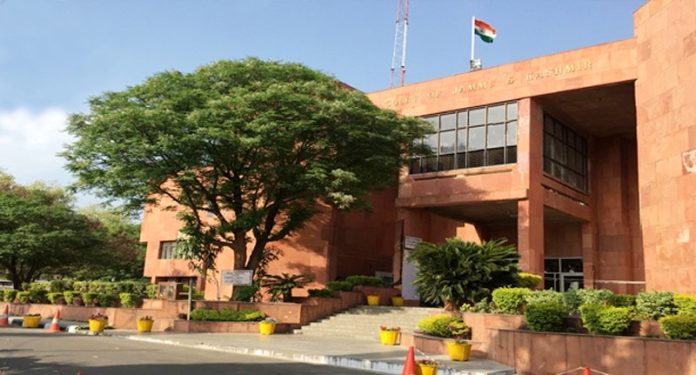Excelsior Correspondent
JAMMU, Sept 24: High Court of Jammu & Kashmir and Ladakh has observed that the law does not allow any discrimination between foreign nationals and Indian nationals regarding the grant of bail, emphasizing that bail must be considered based on the facts and circumstances of each case, and conditions may be imposed to ensure the accused is available for trial, but bail cannot be denied simply because the accused is a foreign national.
While deciding a petition filed by a foreign national accused under Section 370 of the Indian Penal Code and Sections 14A and 14C of the Foreigners Act, 1946, Justice Sindhu Sharma emphasized, “the law does not authorize or permit any discrimination between a foreign national and Indian national in the matter of granting bail and the same has to be considered on the facts and circumstances of each case”.
“The court can impose different conditions which may be necessary to ensure that the accused will be available for facing trial but it cannot be said that the accused will not be granted bail because of being a foreign national”, the High Court further said.
The petitioner had been arrested along with others in connection with allegations of human trafficking, with charges framed under Section 370 of the Indian Penal Code and Sections 14A and 14C of the Foreigners Act, 1946. The case was initiated after a police investigation led to the discovery of non-local women at the residence of the petitioner and co-accused individuals.
Following the investigation, the petitioner was initially granted interim bail by the Judicial Magistrate, which was later made absolute. However, during subsequent proceedings involving other co-accused persons, the Additional Sessions Judge, Budgam, rejected the bail applications of 14 co-accused individuals and, in the same order, suo motu cancelled the bail that had previously been granted to the petitioner.
The court, without issuing any prior notice, remanded the petitioner and her co-accused into judicial custody, citing the seriousness of the charges. The petitioner approached the High Court seeking reinstatement of her bail, contending that the cancellation was improper.
The High Court emphasized that bail revocation requires strong and compelling reasons, and the trial court had failed to establish such reasons in its decision to cancel the petitioner’s bail. The High Court observed that the petitioner’s detention was not warranted in light of her personal circumstances, particularly given that she was a long-term resident in India, married to a local resident, and the mother of a minor child.
The High Court concluded by quashing the impugned order that had placed the petitioner in judicial custody. The petitioner was granted bail, subject to conditions designed to ensure her appearance at future hearings, including the submission of personal and surety bonds.


